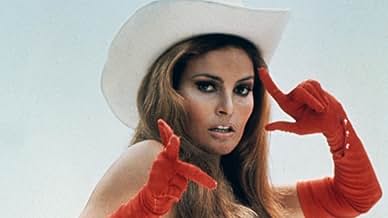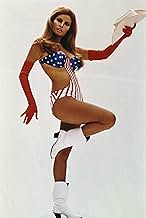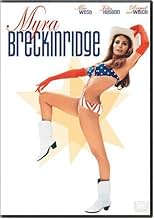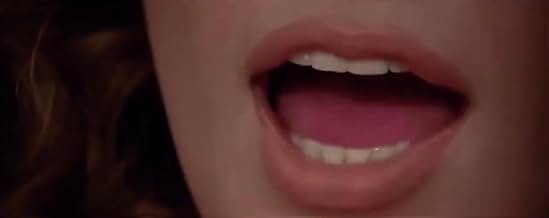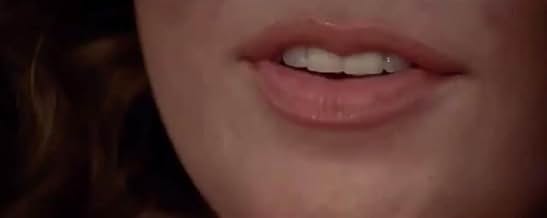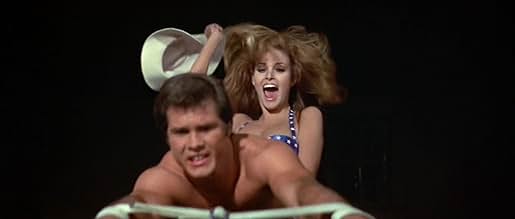CALIFICACIÓN DE IMDb
4.5/10
3.6 k
TU CALIFICACIÓN
Tras someterse a una operación de cambio de género, una aspirante a actriz viaja a Hollywood, donde también quiere reclamar la herencia de su adinerado tío.Tras someterse a una operación de cambio de género, una aspirante a actriz viaja a Hollywood, donde también quiere reclamar la herencia de su adinerado tío.Tras someterse a una operación de cambio de género, una aspirante a actriz viaja a Hollywood, donde también quiere reclamar la herencia de su adinerado tío.
- Dirección
- Guionistas
- Elenco
Robert P. Lieb
- Charlie Flager, Sr.
- (as Robert Lieb)
- Dirección
- Guionistas
- Todo el elenco y el equipo
- Producción, taquilla y más en IMDbPro
Opiniones destacadas
A man who wishes to become a woman wants to show the world that men are not the superior beings that they have been made out to be. To in fact do to men what men have been doing to women since the beginning of time. Is it surprising that this film is despised by so many people - especially men? The fact that this film is so threatening is a good sign that it is right on track. A handsome idiot "stud", an over-the-hill sexist cowboy wannabe and a whole stable of dumb gorgeous guys (including Tom Selleck!) show what all those fun, sexist sixties movies look like in the mirror image. For here it is the women (Myra and an elderly Mae West) who throw out the sexist innuendo and treat men like fresh meat that have little value other than what they can offer women with their bodies. The sight of an unattractive and elderly Mae West always gets the shaft by the film's critics, yet they rarely comment on the appearance of her male counterpart (played with great relish by John Huston) who also seduces (and I might add verbally abuses) women one-third his age. Hmmm. The fact that this film is so hated shows how far men still have to go before opening up their minds and really seeing the double standards that they adhere to when it comes to sex comedies. It's only when the tables are turned that one can truly perceive this - and this film does this beautifully. It is after all a satire and commentary on Hollywood (as well as on the cheesy camp classics from everyone from Roger Corman to Russ Meyer). The interspersing of classic Hollywood movies depicting this seems to have eluded many viewers since they're so used to taking such images for granted. They don't question them or even see what those classic images are really projecting.
Anyway, this is the most brilliant example of camp cinema to date. The hilarious sabotaging of scenes with reaction shots from various movie stars reflects the so-called innocence of the audience (no wonder so many people find that uncomfortable!), and the film is also choked full of famous faces parodying the very images that made them famous. It has all the camp and surreal qualities of Gore Vidal's book, and it retains most of his incredible dialogue. It is also one of the best movies about Hollywood and the jerks who work there. And last but not least, Raquel Welsh should be most proud of her performance. I cannot imagine anyone else in this role because she is not only wonderful, she completely turns the tables on the stereotypes she personified to men throughout her career. She was a wonderfully cheesy sex goddess, and here she finally has a chance to ahem, be in the driver's seat. It's all just in fun, and that's what the movie is saying. If treating women like they are just a pair of boobs is entertainment, then why can't treating men like they are just a pair of bullocks be the same?
Anyway, this is the most brilliant example of camp cinema to date. The hilarious sabotaging of scenes with reaction shots from various movie stars reflects the so-called innocence of the audience (no wonder so many people find that uncomfortable!), and the film is also choked full of famous faces parodying the very images that made them famous. It has all the camp and surreal qualities of Gore Vidal's book, and it retains most of his incredible dialogue. It is also one of the best movies about Hollywood and the jerks who work there. And last but not least, Raquel Welsh should be most proud of her performance. I cannot imagine anyone else in this role because she is not only wonderful, she completely turns the tables on the stereotypes she personified to men throughout her career. She was a wonderfully cheesy sex goddess, and here she finally has a chance to ahem, be in the driver's seat. It's all just in fun, and that's what the movie is saying. If treating women like they are just a pair of boobs is entertainment, then why can't treating men like they are just a pair of bullocks be the same?
Quite how this became Hollywood's most famously reviled and ridiculed creation is almost as mysterious as how such a bizarre film was ever made in the first place.
It's the story of a gay film critic knocked unconscious in a car accident who then dreams he has undergone a sex-change operation and been recreated in Raquel Welch's image. I managed to work that much out after two viewings, the first wondering what the hell I was seeing and the second spotting the few clues to the "plotline" that exist between the scenes of insane camp and bizarre sexual acts.
Somehow, through all the confusion and early '70s delirium, I found myself enjoying it. It is a ridiculous mess, but where else are you going to see the legendary John Huston receiving a brutal Swedish massage and Raquel Welch in glorious widescreen, Technicolor Panavision wearing a strap-on and cowgirl outfit ensemble? Not in Legally Blonde, I know that much.
It's the story of a gay film critic knocked unconscious in a car accident who then dreams he has undergone a sex-change operation and been recreated in Raquel Welch's image. I managed to work that much out after two viewings, the first wondering what the hell I was seeing and the second spotting the few clues to the "plotline" that exist between the scenes of insane camp and bizarre sexual acts.
Somehow, through all the confusion and early '70s delirium, I found myself enjoying it. It is a ridiculous mess, but where else are you going to see the legendary John Huston receiving a brutal Swedish massage and Raquel Welch in glorious widescreen, Technicolor Panavision wearing a strap-on and cowgirl outfit ensemble? Not in Legally Blonde, I know that much.
Somebody once said that Gore Vidal's novel "Myra Breckinridge" was un-filmable to begin with. That's probably true. One scene in the book--- a female-on-male rape, described in nauseating, horrific detail--- would have sent most movie directors scurrying in the opposite direction. There's no way that this story could have ever become a classic mainstream movie. But it's not all that bad, thanks mostly to some really clever casting (bringing Mae West into the film was a stroke of genius) and a wonderful, bitingly funny and dead-on performance by a young Raquel Welch.
The basic story is a *really* bizarre dark comedy involving a guy, Myron Breckinridge (Rex Reed), who has sex-change surgery--- or does he, really?--- to become his alter-ego Myra (Raquel Welch). As a female, Myra tries to shake down her uncle Buck Loner (John Huston) into giving her at least half of his popular acting school. There are a few side stories along the way, involving Mae West as a sex-mad Hollywood agent, Farrah Fawcett as a sunny-smiling dumb blonde, and Roger Herron as handsome young Rusty-the-Stud, who ends up being nothing much more than a boy-toy (both in the film and in real life. Was he *ever* heard from again after appearing in this movie?)
The theme of this movie is "Hollywood" in great big letters. A fascination with the movie industry runs through it. It's about everything we imagine Hollywood to be: actors, agents, Southern California, limousines, wild sex, drugs, nudity, the whole bit. There are references to, film clips of, and appearances by, classic Hollywood movies and stars. If you aren't interested in Hollywood and what it represents--- or used to represent--- forget this movie. You won't like it. That's what it's about.
The fun (and there is some) lies in the cynical mechanisms of nearly all the leading players. Well, all except Farrah Fawcett, that is; her wide smile and big teeth, years before "Charlie's Angels", is all happy sincerity; this girl doesn't have a cynical bone in her body. You can't help but like her).
Plopped directly into the middle of various scenes, often with no purpose whatsoever but to add "mood", are dozens of film clips from old 20th-Century-Fox movies. The inclusion of these off-the-wall clips give the whole movie a slightly off-center, psychedelic feel that must have felt self-knowingly hip in the late 1960s and early 1970s.
Two big highlights in this movie: the performances of Raquel Welch and Mae West. West got top billing, but is actually seen in a *very* small role; maybe 10 minutes of total screen time. Her scenes are completely self-contained; they don't have much to do with the rest of the movie (except in mood and style), but they are great fun to watch. I'm really shocked by all of the negative comments about her by other reviewers. They aren't giving her enough credit, because West was *hilariously* funny at the mind-boggling age of 77 when she made this movie. Most of the time, she seems easily 30 years younger. (Only for one brief scene in the back seat of a limo--- where she looks quite weary--- does it seem even possible this woman might be on the far side of elderly).
West may have been in her late 70s here, but her character was definitely not. She's playing a hip, powerful, horny, dynamic, middle-aged foxy chick, and damn if she doesn't pull it off with aplomb and style. It would be an impossible role for any other woman of her age, but she did it so successfully that you don't realize what an accomplishment it was until you think about it. West alone is worth the price of admission--- or the price of the DVD, anyway.
Raquel Welch was also at the very top of her form here. An absolute knockout to look at, Welch was drop-dead gorgeous, and she gives a biting, sarcastic, and also hilariously funny performance as Myra. She, by the way, *is* the leading role, despite Mae West getting top billing. The two women did not get at all along during filming, by the way, and in their one scene together, it's obvious that they were never filmed at the same time; their dialogue consists entirely of close-ups of each lady separately.
This movie tried, maybe a little too hard, to be hip and "adult" at the time, and so it's got some needlessly raunchy language and situations in it (including the afore-mentioned female-on-male rape which, unfortunately, did make it into the movie. It's almost as horrific as reading about it in the book was, and you have to feel sorry for Roger Herron as Rusty, the object of Myra's ugly power fantasy.) It was awfully hard to even put a story like this on film in the first place, but Michael Sarne did try, and he succeeded more than failed. I think it's worth it. But know what you're in for when you watch it!
The basic story is a *really* bizarre dark comedy involving a guy, Myron Breckinridge (Rex Reed), who has sex-change surgery--- or does he, really?--- to become his alter-ego Myra (Raquel Welch). As a female, Myra tries to shake down her uncle Buck Loner (John Huston) into giving her at least half of his popular acting school. There are a few side stories along the way, involving Mae West as a sex-mad Hollywood agent, Farrah Fawcett as a sunny-smiling dumb blonde, and Roger Herron as handsome young Rusty-the-Stud, who ends up being nothing much more than a boy-toy (both in the film and in real life. Was he *ever* heard from again after appearing in this movie?)
The theme of this movie is "Hollywood" in great big letters. A fascination with the movie industry runs through it. It's about everything we imagine Hollywood to be: actors, agents, Southern California, limousines, wild sex, drugs, nudity, the whole bit. There are references to, film clips of, and appearances by, classic Hollywood movies and stars. If you aren't interested in Hollywood and what it represents--- or used to represent--- forget this movie. You won't like it. That's what it's about.
The fun (and there is some) lies in the cynical mechanisms of nearly all the leading players. Well, all except Farrah Fawcett, that is; her wide smile and big teeth, years before "Charlie's Angels", is all happy sincerity; this girl doesn't have a cynical bone in her body. You can't help but like her).
Plopped directly into the middle of various scenes, often with no purpose whatsoever but to add "mood", are dozens of film clips from old 20th-Century-Fox movies. The inclusion of these off-the-wall clips give the whole movie a slightly off-center, psychedelic feel that must have felt self-knowingly hip in the late 1960s and early 1970s.
Two big highlights in this movie: the performances of Raquel Welch and Mae West. West got top billing, but is actually seen in a *very* small role; maybe 10 minutes of total screen time. Her scenes are completely self-contained; they don't have much to do with the rest of the movie (except in mood and style), but they are great fun to watch. I'm really shocked by all of the negative comments about her by other reviewers. They aren't giving her enough credit, because West was *hilariously* funny at the mind-boggling age of 77 when she made this movie. Most of the time, she seems easily 30 years younger. (Only for one brief scene in the back seat of a limo--- where she looks quite weary--- does it seem even possible this woman might be on the far side of elderly).
West may have been in her late 70s here, but her character was definitely not. She's playing a hip, powerful, horny, dynamic, middle-aged foxy chick, and damn if she doesn't pull it off with aplomb and style. It would be an impossible role for any other woman of her age, but she did it so successfully that you don't realize what an accomplishment it was until you think about it. West alone is worth the price of admission--- or the price of the DVD, anyway.
Raquel Welch was also at the very top of her form here. An absolute knockout to look at, Welch was drop-dead gorgeous, and she gives a biting, sarcastic, and also hilariously funny performance as Myra. She, by the way, *is* the leading role, despite Mae West getting top billing. The two women did not get at all along during filming, by the way, and in their one scene together, it's obvious that they were never filmed at the same time; their dialogue consists entirely of close-ups of each lady separately.
This movie tried, maybe a little too hard, to be hip and "adult" at the time, and so it's got some needlessly raunchy language and situations in it (including the afore-mentioned female-on-male rape which, unfortunately, did make it into the movie. It's almost as horrific as reading about it in the book was, and you have to feel sorry for Roger Herron as Rusty, the object of Myra's ugly power fantasy.) It was awfully hard to even put a story like this on film in the first place, but Michael Sarne did try, and he succeeded more than failed. I think it's worth it. But know what you're in for when you watch it!
The book "Myra Breckinridge" is marvelous, and so is its nutty sequel "Myron" (which takes place on the set during the making of the Maria Montez movie "Siren of Atlantis" and, in its original published version, is a diatribe against censorship and finds new ways to use the name Rehnquist). The movie, a big flop in 1970, is not marvelous, but starts intriguingly and still has an aura of the forbidden about it (it was rated X; in 1970 that wasn't a liability, it could be a marketing scheme). The Fox Movie Channel showed the film recently in widescreen and I watched it (the latest in several viewings ) and I failed to notice exactly when it begins to unravel.
In spite of its ultimately depressing and sleazy tone, the movie does have some lovely things in it: the winking girl who pops up in various scenes throughout, Raquel Welch's game, amusing performance, an intriguing visual style, the usage of old movie clips to comment on the action in a meta-cinematic manner (my favorite is the brief glimpse of Marilyn Monroe in the unfinished "Something's Got To Give," a glimpse that could have been furthered), a bizarre underused supporting cast of excellent Old Hollywood character actors (Jim Backus, Kathleen Freeman, Grady Sutton, Andy Devine, John Carradine, etc.) and a short appearance by Genevieve Waite, the star of the director's previous, and only, hit film "Joanna." Waite is also the mother of Bijou Phillips and the ex-wife of John Phillips, of The Mamas and The Papas. (John Phillips wrote the song "A Secret Place" that was used in the film.) I wish I could have been a fly on the wall when the movie was being made. Rex Reed, one of the stars in the film, WAS a fly on the wall and wrote about the fiasco in Playboy magazine. Then he went on The Mike Douglas Show and gave out his Christmas list. To everyone who saw the movie "Myra Breckinridge" he gave a case of amnesia.
I agree with another comment here that the movie has finally caught up with its audience, but only if you know a little something about Old Hollywood and really love cinema.
In spite of its ultimately depressing and sleazy tone, the movie does have some lovely things in it: the winking girl who pops up in various scenes throughout, Raquel Welch's game, amusing performance, an intriguing visual style, the usage of old movie clips to comment on the action in a meta-cinematic manner (my favorite is the brief glimpse of Marilyn Monroe in the unfinished "Something's Got To Give," a glimpse that could have been furthered), a bizarre underused supporting cast of excellent Old Hollywood character actors (Jim Backus, Kathleen Freeman, Grady Sutton, Andy Devine, John Carradine, etc.) and a short appearance by Genevieve Waite, the star of the director's previous, and only, hit film "Joanna." Waite is also the mother of Bijou Phillips and the ex-wife of John Phillips, of The Mamas and The Papas. (John Phillips wrote the song "A Secret Place" that was used in the film.) I wish I could have been a fly on the wall when the movie was being made. Rex Reed, one of the stars in the film, WAS a fly on the wall and wrote about the fiasco in Playboy magazine. Then he went on The Mike Douglas Show and gave out his Christmas list. To everyone who saw the movie "Myra Breckinridge" he gave a case of amnesia.
I agree with another comment here that the movie has finally caught up with its audience, but only if you know a little something about Old Hollywood and really love cinema.
When I saw 'Myra Breckinridge,' the projector broke down no less than eight times throughout the films's 94-minute duration. In most cases, this would be an inexcusable annoyance for me, but in this case, I was grateful. After every ten minute stretch of this film, I felt like I needed some respite.
The only reason to see this movie, the only thing I found remotely entertaining or funny, is to see film critic Rex Reed masturbating. Years later, Reed savaged David Lynch's 'Blue Velvet' with an angry zeal and called the movie "brain-damaged garbage" and also displayed a fragile sensitivity in denouncing the sickness of Pasolini's 'Salò.' Watching him in 'Myra Breckinridge' gives new dimensions to those reviews.
Whatever the merits of 'Valley of the Dolls,' it's a genuine camp movie because it achieves that status unintentionally. It played itself straight and failed as a drama. The intent with 'Myra Breckinridge' seemed to be, from the very start, to make the next camp classic, and so the film has no dramatic level on which to fail. It cuts straight to the camp and does it horribly.
The only reason to see this movie, the only thing I found remotely entertaining or funny, is to see film critic Rex Reed masturbating. Years later, Reed savaged David Lynch's 'Blue Velvet' with an angry zeal and called the movie "brain-damaged garbage" and also displayed a fragile sensitivity in denouncing the sickness of Pasolini's 'Salò.' Watching him in 'Myra Breckinridge' gives new dimensions to those reviews.
Whatever the merits of 'Valley of the Dolls,' it's a genuine camp movie because it achieves that status unintentionally. It played itself straight and failed as a drama. The intent with 'Myra Breckinridge' seemed to be, from the very start, to make the next camp classic, and so the film has no dramatic level on which to fail. It cuts straight to the camp and does it horribly.
¿Sabías que…?
- TriviaIt was Lee Majors who got then-girlfriend Farrah Fawcett involved in this movie. He was sought for the role of Rusty but turned it down. However, he did introduce the producers to Fawcett, who had done several television commercials by that time, and she was hired to play Mary Ann. She later told Rona Barrett, "It was a terrible picture. But it taught me a lot about egos and star-trips. Everyone was on that!"
- ErroresApparently pieced together from different takes, Myra's blouse collar alternately appears fully outside, partially inside/outside and fully outside her jacket while she "depantses" Rusty in her office.
- Versiones alternativasOriginally rated "X" when released in 1970. In 1978 the film edited to be re-rated "R".
- ConexionesEdited from El infierno de Dante (1935)
- Bandas sonorasSecret Place
Music by John Phillips
Lyrics by John Phillips
Sung by Rex Reed (uncredited)
[Also sung by off-screen vocal group]
Selecciones populares
Inicia sesión para calificar y agrega a la lista de videos para obtener recomendaciones personalizadas
- How long is Myra Breckinridge?Con tecnología de Alexa
Detalles
- Fecha de lanzamiento
- País de origen
- Idiomas
- También se conoce como
- Gore Vidal's Myra Breckinridge
- Locaciones de filmación
- 6914 Hollywood Boulevard, Hollywood, Los Ángeles, California, Estados Unidos(Myron and Myra dancing on the street, Ann Miller's star on the Hollywood Walk of Fame)
- Productora
- Ver más créditos de la compañía en IMDbPro
Taquilla
- Presupuesto
- USD 5,385,000 (estimado)
- Tiempo de ejecución1 hora 34 minutos
- Color
- Relación de aspecto
- 2.35 : 1
Contribuir a esta página
Sugiere una edición o agrega el contenido que falta


